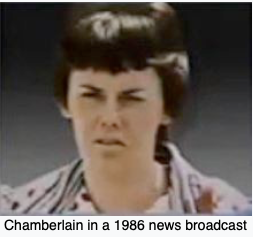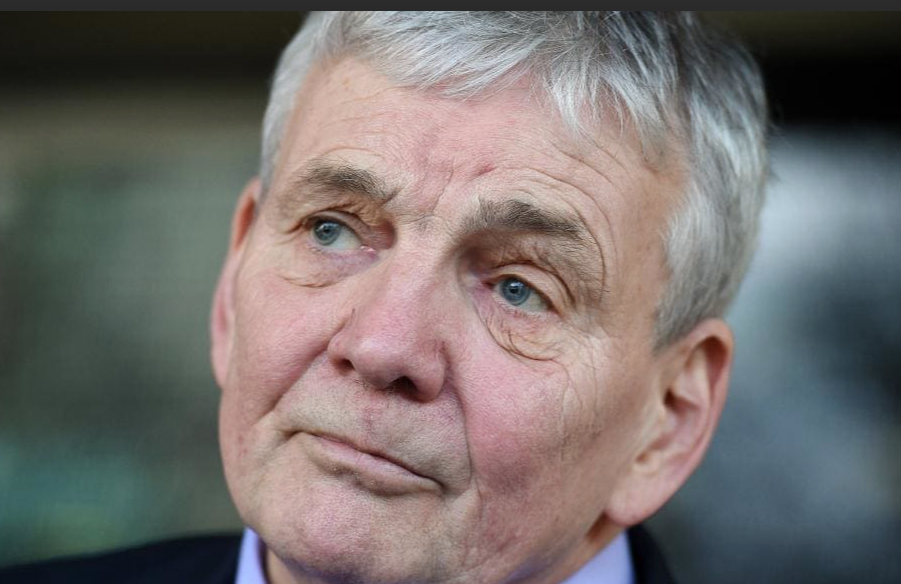When her guilty verdict was no longer tenable, Lindy Chamberlain was released before her appeal was heard. Could Sue Neill-Fraser ask for the same? Legal academic, Dr Bob Moles*, an authority on wrongful convictions, sets out the scenario, in view of Meaghan Vass admitting on 60 Minutes (March 10, 2019) that she was a witness to the 2009 murder and Neill-Fraser – who was convicted of the murder – was not there.
The prerogative power vested in the Governor allows for the remission of a sentence ‘in the exercise of Her Majesty’s mercy’ where deemed appropriate to do so. It is a matter of constitutional convention that the Governor acts only upon the advice of the Government ministers, in this case the Attorney-General who accepts the advice of the Executive Counsel on such matters.
As it may take some time for the appeal process to run its course, it is possible for the prerogative power to be exercised whilst an appeal is foreshadowed or pending. This is in fact what occurred in the case of Lindy Chamberlain who was released before her appeal was heard.

[The Administrator, the equivalent of the State Governor, accepted the advice of the Executive Council that the balance of the sentence be remitted, 7 February 1986.
In 1987 Lindy and Michael Chamberlain were pardoned. The convictions were overturned by the Court of Criminal Appeal in September 1988.
See Wikipedia – https://en.wikipedia.org/wiki/Lindy_Chamberlain-Creighton
and the NetK Chamberlain Homepage: http://netk.net.au/NTHome.asp]
It is possible of course that some may take the view that in the context of the history of this case, it is unlikely that the Attorney will recommend such a course of action, and may say let the appeal take its course.
My view is that it is better to submit the petition and get a refusal, otherwise the Attorney can say the further delay was not his fault, because he was never asked to exercise the petition power, and he could not exercise it of his own volition.
Of course the Attorney may consult with the DPP and the DPP may well say the statement by Vass should not be acted upon because she is an unreliable witness. However, if the DPP were to take that view, then that would amount to an ‘own goal’ by the DPP.
Such a view by the DPP would contradict the view of Vass which the DPP put to the jury.

Meaghan Vass (fb 2019)
At trial in 2010, the DPP presented Vass as a reliable witness and when she said she was not on the boat that night, the court accepted that as a truthful statement. (And a defence request to recall her for further examination was refused after objection from the DPP.)
If the DPP were now to say that she is an unreliable witness, then that change of opinion by the DPP would amount to a fresh evidence issue, and surely one sufficient to allow for the appeal to succeed.
In effect, the jury were misinformed by the DPP on this issue.
The change of status of such a key witness (from reliable to unreliable) on such a key issue must surely be a sufficient ground for a successful appeal.
The test is whether the mistake at trial (misinforming the jury as to the credibility or reliability of a key witness) was ‘reasonably likely’ to have influenced the jury in arriving at their verdict. If so, then the appeal ‘must’ be allowed.
Or alternatively if the jury had known about the change of status of the witness, would a conviction, nevertheless have been ‘inevitable’?
I would take the view that the Crown should be given every opportunity to do the right thing, and even if one were to expect a negative response, they should be put to the test. If they choose not to do the right thing, then subsequent assessments of their conduct can take that into account.
Of course, in the absence of a petition application, it may be possible during the course of the appeal to make an application for release on bail. However, when we asked counsel in the Bromley appeal to do just that on his behalf, they refused to do so on the basis that it might look as though they were attempting to pre-empt the outcome of the appeal.
I must emphasize, of course, that I have no idea how the legal advisers in the Neill-Fraser appeal might respond to these recent events as their considerations of the complex issues of this case must be a matter for them alone.
Like everyone else, we will only know what they decide to do when they do it, because it would be wrong for them to be involved in public discussion of such sensitive issues, prior to implementing them during the court process.
We can only watch with interest.
 * Dr Moles is Adjunct Principal Researcher, College of Humanities, Arts and Social Sciences, Flinders University of South Australia, and has published several books on miscarriages of justice in Australia.
* Dr Moles is Adjunct Principal Researcher, College of Humanities, Arts and Social Sciences, Flinders University of South Australia, and has published several books on miscarriages of justice in Australia.

I believe that the only way to force the Tasmanian Government to release
Susan Neill-Fraser is to affect Tourism to that beautiful state.
I sent the following Email to the CEO of Tourism Tasmania today.
John.Fitzgerald@tourism.tas.gov.au
Hi John
I would love to visit Tasmania again.
However until Susan Neill-Fraser is released from prison I refuse to do so.
Regards
Rodger Warren
Berwick
Victoria
Geraldine, I am aghast at the reproduced correspondence written by Elise Archer. How can she, the Attorney General, write there is no need for a review!? Is this correspondence accurate? If indeed it is, I am sure I am not alone in thinking she is perpetuating the myth that there is no possibility of a serious miscarriage of justice in Susan Neill – Fraser’s case – this is terrifying and showing intentional disregard for the volumes of evidence and expert opinions that suggest otherwise. The old saying “ there are none so blind as those who will not see” springs to mind. How long can this disturbing situation be ignored by those in Tasmania who appear to be stonewalling instead of swinging into action to facilitate an urgent review?
Thanks for the brief.
This will be one of those historical moments where we may see how some people interpret and apply their version of the law.
I hope for Sue it isn’t used as another weapon by the crown .
Some of the crowns earlier decisions could be called bastardry.
“My view is that it is better to submit the petition and get a refusal, otherwise the Attorney can say the further delay was not his fault, because he was never asked to exercise the petition power, and he could not exercise it of his own volition.”
For this record, current Tasmanian Attorney-General is Hon Elise Archer.
Remember, just last month AG wrote, ‘However, I will add that I have every confidence in the Tasmanian legal system and see no need for such a review.”
Dr Kristine Klugman OAM
President
Civil Liberties Australia
4 Feb 2019
Dear Dr Klugman,
Thank you for your recent letter calling for a Royal Commission into t he system of justice in Tasmania, and in particular the matter of Ms Sue Neill-Fraser.
As this matter is currently before the Court, it would not be appropriate for the Government to comment on the specifics of Ms Neill-Fraser’s conviction, or engage in any commentaryOn the matter.To do so, would risk allegations that the Government is seeking to inappropriately influence the courts.
However, I will add that I have every confidence in the Tasmanian legal system and see no need for such a review.
Yours sincerely
Hon Elise Archer MP
Attorney-General
Minister for Justice
cc Hon Will Hodgman MP
Premier
Given the current Royal Commission into corruption of the judicial system, I very much doubt the authorities are going to rush into anything even closely resembling unfairness or corruption. Now is a bad time to be pursuing an appeal, in my opinion. But the royal commission can take many years to conclude its findings and the government has a nasty habit of sealing “public” inquiries for up to 100 years when it makes them look bad. What a terrible mess for Sue :(
“At trial in 2010, the DPP presented Vass as a reliable witness and when she said she was not on the boat that night, the court accepted that as a truthful statement.”
Dr Bob Moles needs to keep in mind that Meaghan Vass wasn’t presented as an expert witness.
Below is some useful information for Dr Bob Moles. It is from HIS HONOR TO JURY, page 49 of the Trial Transcript:
“Now the Crown in order to try to prove guilt will be calling a large number of witnesses – I gave you most of their names this morning – and they’ll come here and they’ll give evidence in the witness box and it’s up to you to make some sort of assessment of their evidence and how reliable or unreliable it is, and what it establishes, and what conclusions or inferences, if any, you can draw from the established facts.One of the reasons that we have juries is so that twelve people, who have been chosen from the community, can make some sort of assessment of the evidence given by other members of the community and decide about questions of whether particulars pieces of evidence are truthful or untruthful – correct or incorrect, and whether particular witnesses might have things right or be wrong or vague or confused or partly right and partly wrong, those sorts of questions are all questions for the jury because the jury are the judges of the facts.”
I think you’re confused as to what an “expert” witness is. An expert witness is someone with qualifications in the field related to a certain piece of evidence. A DNA expert for example, or a psychologist, a doctor, a coroner.
The only reason Ms Vass was used by the prosecution is so that the defense couldn’t use her testimony in their favour. Oldest trick in the book.
I don’t think that you correctly read what Kevin wrote. Did you notice the word ‘wasn’t’ in the sentence “Dr Bob Moles needs to keep in mind that Meaghan Vass wasn’t presented as an expert witness.”?
In the context of Kevin’s comment, what is the inference if Ms Vass WAS presented as an expert witness? Think about it.
In the context that you are presenting it Jenny, is like saying “crime is illegal” ie: it wouldn’t be called crime if it wasn’t illegal.
So please do explain: what is the context of saying Ms Vass was or wan’t presented as an expert?